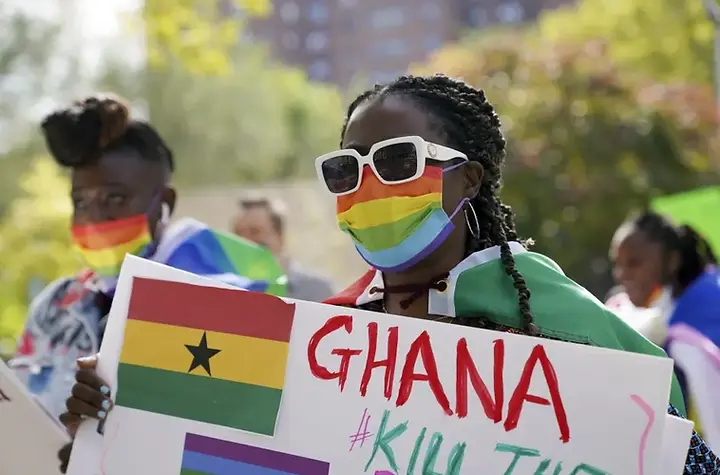Heading 2
Heading 2
Heading 2

4/18/24, 9:15 AM

Ghana's LGBT community, alongside human rights activists, is anxiously waiting for President Nana Akufo-Addo's decision on a contentious bill that seeks to impose severe restrictions on their rights. If signed into law, this legislation would not only increase the penalties for homosexual acts—currently punishable by up to three years in prison—but would also criminalize the promotion or support of LGBT rights with up to five years of imprisonment.
The bill, which was unanimously passed by Parliament in February, faces opposition due to its potential to further exacerbate the persecution of the LGBT community in Ghana.
The President has delayed the signing, citing the need to consider two challenges currently before the Supreme Court. A critical court ruling is expected soon, as the High Court in Accra is set to decide on a lawmaker's petition this Thursday, urging the President to act within seven days.
The LGBT community's fears are grounded in real experiences of violence and discrimination. Kwame, a 30-year-old gay man, shared a particularly distressing account with Reuters, revealing the physical scars he carries from a brutal attack by neighbors in 2021, sparked by his sexual orientation.
"I was born with two eyes, but this is what I have now," he said, indicating a damaged eye hidden behind oversized spectacles. He fears that the enactment of the bill would empower those seeking to harm LGBT individuals under the guise of legality, intensifying the dangers they face.
For Kwame and his partner, who currently live apart for safety reasons, the situation is dire. They believe their safest bet is to leave Ghana before the law takes effect, although financial constraints make fleeing the country challenging.
This unfolding situation places Ghana at a crossroads, potentially setting a precedent for the treatment of LGBT rights in Africa. The international community and human rights organizations are closely monitoring these developments, underscoring the broader implications for human rights and justice in the region.
You May Also Like


